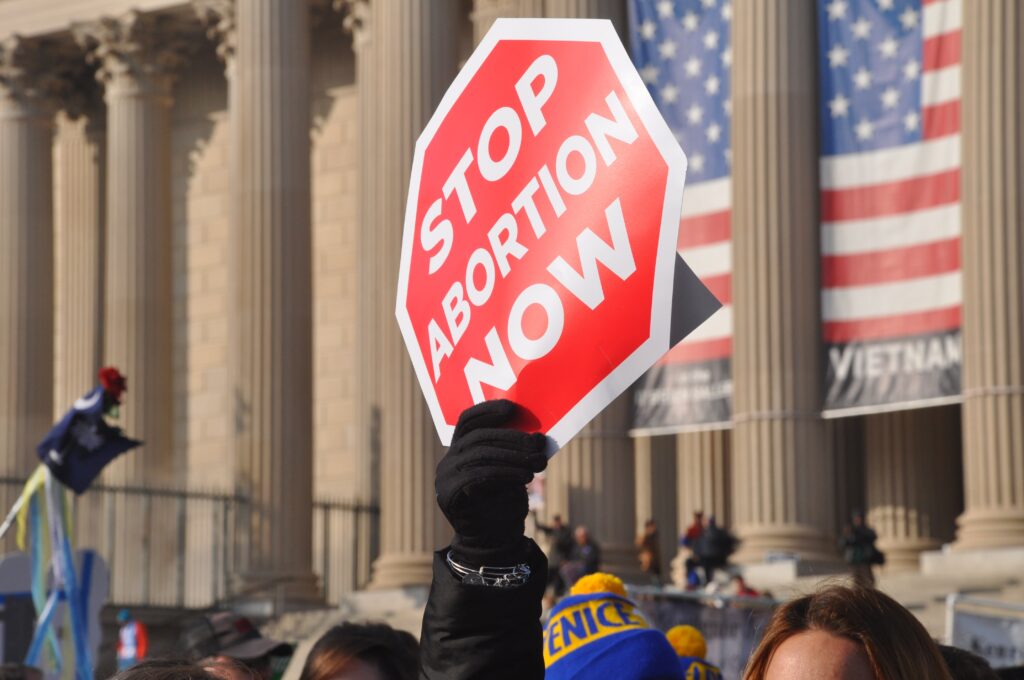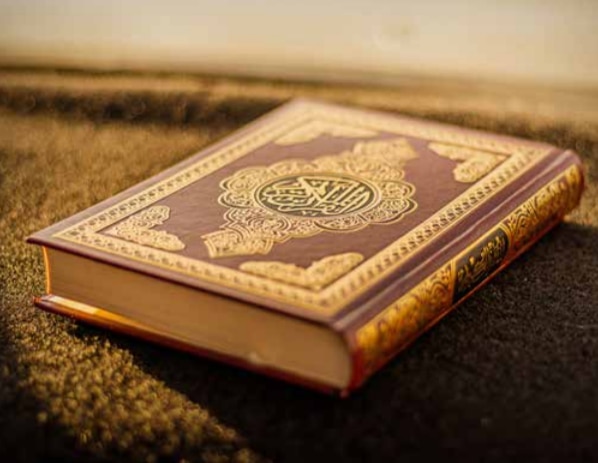Romaan Basit, Final-Year Student, Jamia Ahmadiyya UK

Since 1973, abortion has been legal in America. However, recently this right was overturned – making it possible for any state to introduce restrictions or even bans on abortion. The impact is such, that already 26 states are expected to act on this immediately.
Roe v Wade
We have seen the term “Roe v Wade” plastered all over headlines recently; a legal case in 1973, in which the US Supreme Court gave the verdict that the right to abortion would be constitutionally protected. The law was passed as a result of the 1969 case of Norma McCorvey – known as Jane Roe – who was denied termination of her pregnancy despite her claim of being raped. Her appeal made it to the US Supreme Court in 1973, where it was decided that all criminal abortion laws would be invalidated. Defending the anti-abortion law was Henry Wade, hence the name “Roe v Wade”.
Since this recent change in the law, famous faces have been vocal in their disagreement. Meghan Markle said, “Reproductive freedom is a fundamental right like freedom of speech”, and Michelle Obama tweeted, “I am heartbroken for people around this country who just lost the fundamental right to make informed decisions about their own bodies.”
With all this going on, the question is, what is Islam’s stance on abortion – is it prolife or pro-choice?
Islam – pro-life or pro-choice?
Islam does not take a definitive, nonnegotiable stance; each case is dealt with differently according to the circumstances and situation.
Generally speaking, Islam places a huge emphasis on the sanctity of life, and abortion is seen as akin to taking the life of another human being.
Hazrat Mirza Tahir Ahmad, Khalifatul Masih IVrh explained:
“Abortion is condemned by all religions, in fact, in the sense that it is a sort of murder. Wherever it is not qualified as murder, it is permitted. The basic prohibiting idea is that of murder; you can’t take a life.” (Does Islam permit abortion, and if so, on what conditions?, Question & Answer Session 22 July 1984, www.youtube.com/watch?v=xqcZ0Hu9GGY)
The above statement leaves room for exceptions, and we all agree that where there are rules, there are exceptions.
If a scenario where giving birth can endanger the life or health of the mother, then Islam gives permission for abortion. Also, under other extreme circumstances such as rape, abortion may also be allowed, depending on the age and the developmental stage of the foetus. Now, let’s get to the root of the matter.
The Quran and abortion
In the Holy Quran, Allah the Almighty states:
“Your wives are a tilth for you.” (Surah al-Baqarah, Ch.2: V. 224)
Hazrat Mirza Ghulam Ahmadas, the Promised Messiah, commenting on this verse, writes in his book Chashma-e-Ma‘rifat:
“It is clear from this verse that due to the fact that women are like a tilth from which, like crops, progeny is born, therefore it is impermissible to prevent this tilth from bearing children. However, if the woman is ill and it is certain that childbirth may result in her death, and likewise if there is any other genuine reason, then such situations are an exception. However, as a general ruling, it is totally impermissible according to the Shariah to prevent offspring from being born.” (Chashma-e-Ma‘rifat, Ruhani Khazain, Vol. 23, p. 292)
Therefore, as a general ruling, abortion is impermissible. However, the Promised Messiahas makes it clear that the mother’s life must be given precedence and saved, even if it means terminating the pregnancy.
Expanding on this very point, Hazrat Mirza Tahir Ahmad, Khalifatul Masih IVrh explained:
“If the child threatens the life of the mother by posing some sort of danger to her who is carrying the child, then whom would you sacrifice upon whom? The lesser things are sacrificed for the sake of higher things. The ram was sacrificed for the sake of Ismael. So […] the mother has a right to live because she has established a life here on earth and it is she who is giving birth to a life. That new life has no right to endanger the life of the mother who is instrumental in giving that foetus some life. In all such cases, abortion is permissible, it is advisable and it is promoted in Islam.
“In cases where there is no genuine or rightful reason for anyone to abort at a stage where the child has already gained a sort of life, then there it would be murder. There it is not permitted.” (Does Islam permit abortion, and if so, on what conditions?, Question & Answer Session, 22 July 1984, www.youtube.com/watch?v=xqcZ0Hu9GGY)
We have established that if the mother’s life is in danger, then abortion is permitted. But in the same passage above, Hazrat Ahmadas also writes:
“Likewise, if there is any other genuine reason, then such situations are an exception.” (Chashma-e-Ma‘rifat, Ruhani Khazain, Vol. 23, p. 292)

Naturally, the following question arises: What else could be taken as a genuine reason?
Hazrat Mirza Masroor Ahmad, Khalifatul Masih Vaa explained this recently in a virtual meeting with Ahmadi Muslim women in the USA on 28 May 2022. When asked regarding the recent abortion ban in the US, Hazrat Khalifatul Masih Vaa stated that there is only one categorical prohibition:
“This is a burning issue in the United States nowadays. Islam says that you should not kill your children because of the fear of their upbringing or because of finances.” (Al Hakam, 3 June 2022, Issue 220, p. 2)
The verse of the Holy Quran which Hazrat Khalifatul Masih Vaa alluded to, is:
“Kill not your children for fear of poverty. It is We Who provide for them and for you. Surely, the killing of them is a great sin.” (Surah Bani Israil, Ch.17: V.32)
He further explained:
“That is the only thing which Islam prohibits for abortion. Otherwise, Islam says that if the health of the woman is not good, she can have an abortion; if the baby is not properly developing, they can do abortion, even from the foetus stage to the later stage. So, in the case of rape, also, if the woman likes that she cannot bear the burden of this child because of the society, they will raise fingers at her all the time, and even if the child is born, the child will also face difficulties in his or her environment, then the mother can decide to get it aborted. Islam permits it.” (Al Hakam, 3 June 2022, Issue 220, pp. 2-3)
These are all genuine reasons to terminate a pregnancy. Therefore, Islam has set out clear parameters. Abortion is allowed; however, only in certain circumstances. This is left to the woman’s discretion, where human intellect comes into the equation.
Every law in the civilised world works (or should work) on mitigating circumstances, and circumstantial evidence holds great worth and value when it comes to judicial matters.
It all comes down to the golden Islamic principle of amal-e-saleh (the right act at the right time), where human freedom of choice, sound judgement and being just to all parties involved is seen as the most important element in not only social but legislative and judicial matters also.
And to conclude, we would like to invite the critics of Islam to reconsider whether Islam, with its teachings of amal-e-saleh, offers a more balanced way of life, or worldly legislation, which is easily influenced by pressure groups and lobbies.


JazakAllah
Thank you for a very elaborated explanation of the issue. Some Women in the West still do not consider abortion of an innocent life (for no reason at all) murder.